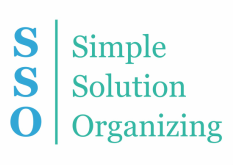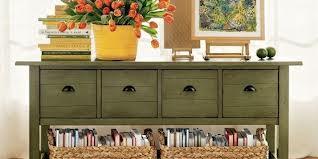|
March/April 2019 Spring is a very busy season for Simple Solution Organizing LLC. We are prepping client’s taxes and their homes to go on the market. We are also working on several Downsizing projects. One of our Downsizing clients told Adele that her sessions feel like a massage. That the organizing and downsizing are therapeutic and it feels as if she had a massage. We love hearing Testimonials like that. Adele Gross, gave a presentation to Athens Clarke County Employees for one of their wellness programs. It was one of their best attended presentations. The room was packed with women and 1 man, a very smart man. I am sharing a blog post from Sarah Anne Hayes that she wrote in February 2017. This post is beautifully written. It describes the difference between Decluttering and Minimalism. This article will motivate you to do both. Becomingminimalist shared this article and I am copying it from their website. These are great resources to inspire you to live a simpler life. The Difference Between Decluttering and Minimalism Decluttering. Simplifying. Minimalism. For a movement that’s focused on removing excess from our lives, we certainly seem to have a lot of words to describe ourselves, don’t we The thing is though we often use words like “decluttering” and “minimalism” interchangeably, they’re not exactly the same thing. I spent a good chunk of time decluttering my home and my life before I officially called myself a minimalist. I also know a lot of people who have decluttered their homes in recent months—many as a direct result of Marie Kondo—but would not consider themselves a minimalist and have no intention of becoming one. It seems that one can declutter their home or life without becoming a minimalist, but one can rarely be a minimalist—and certainly not become one—without first going through the process of decluttering. So what, exactly, is the difference between decluttering and minimalism? It’s pretty simple: decluttering is an action, while minimalism is a lifestyle. What is Decluttering? Let’s start with decluttering. After all, that’s where most people’s minimalism journey begins. There are a variety of different reasons you might begin to declutter your home. Perhaps it’s because of a life change—you’re preparing to move to a new city, you’re getting married and need to consolidate belongings, or you find yourself no longer needing items you once considered necessary. Your desire to declutter might also come as a result of a feeling or shift in perspective. Perhaps a parent or relative has recently died and, in the midst of sorting through all of their belongings, you realize that isn’t the kind of legacy you want to leave for your own children. Or maybe, like myself, you simply find yourself overwhelmed by the amount of unnecessary stuff in your life and you feel a little bit like you’re drowning. Regardless of the personal tipping point, decluttering is an action you take as a result. You might declutter a certain aspect of your life, like your closet, your home, or your schedule, or you might declutter all of the above. A lot of people assume that decluttering is a one-time thing—that once you rid your home or your clothes or whatever from the unnecessary extras, you’ll never have to do the same thing again. And it’s true you might never go through a major declutter or purge again, but only if you maintain. It’s in the maintenance that I believe many people transition from simply decluttering to becoming a minimalist. A Change in LifestyleLike I’ve mentioned before, I decluttered a lot of areas of my life before I considered myself a true minimalist. And there are even days where I look around my home, still feel a little bit overwhelmed by the excess, and wonder if or when I’ll be a “real” minimalist (whatever that means). I don’t know if anyone who begins to remove clutter from their life specifically starts with the goal of becoming a minimalist. It’s possible that is the case for some, but I think it’s probably rare. Rather, what happens most often, and what happened for myself is that, as you travel down the path of decluttering and removing excess from your life, a shift in perspective happens. You begin to see how much calmer your home feels without clutter and mess all over the place. You notice how much easier it is to choose an outfit in the morning and how much more confident you feel when you purge and curate your wardrobe. You see how your heart and soul can breathe a bit easier when you narrow your commitments down to only the essentials. You recognize how much better your body feels and looks when you nourish it with simple, whole things. You find you can hear yourself think again when you choose to consciously consume by unsubscribing, unfriending, and unfollowing. Sooner or later, these moments of clarity and revelation add up and you begin to see that the old adage “less is more” has some serious weight behind it. You begin to see the possibilities open to you when your life isn’t always filled to overflowing. You begin to see just how much you were missing when life was packed full of unnecessary things, commitments, information, and ideas that added no real value to your life. Becoming a Minimalist It’s in these moments that I believe minimalists are born. As we remove the excess from our lives—no matter what area—we begin to see that a simpler, slower, quieter life offers far more lasting value than a life that never stops. No one wants to live a mediocre life. Even if we all aren’t destined to change the world on a global scale, I believe, deep down, we all want to know that we didn’t waste the time we’ve spent on this earth. We want to know that we’ve focused on the things that have lasting value—family, friends, memories—instead of things that will fade away. Sometimes I still feel a little weird when I tell people I’m a minimalist. If they’re in my home, they usually raise their eyebrows and not so subtly glance over at my bookshelf, which, admittedly, has a not-so-minimal number of books on it. If we’re somewhere else, I can see the images of what they think minimalism means floating through their head and all the ways I don’t match up to it. But here’s the thing, minimalism isn’t prescriptive. There isn’t a formula and a right or a wrong way to do it. My minimalism, as a single, 20-something bibliophile, looks different than the minimalism of a married couple without kids, which looks different than the minimalism of a family with young children. The important thing isn’t how you do it, what you keep, or the number of things you ultimately wind up with. The important thing is allowing that shift in perspective—fighting against the cultural message that the things you own represent your success, that you must be busy in order to be productive, that who you are and what you have will never be enough—and recognizing that the most important things in life were never things. *Note — This article was originally published at Sarah Anne Hayes. Adele Tusson-Gross Chief Executive Organizer Simple Solution Organizing LLC
0 Comments
|
AuthorAdele Tusson-Gross Categories
All
|
Simple Solution Organizing LLC
Serving Athens and surrounding cities since 2003
706-714-1314 Cell
Please click here to send us an email



 RSS Feed
RSS Feed

